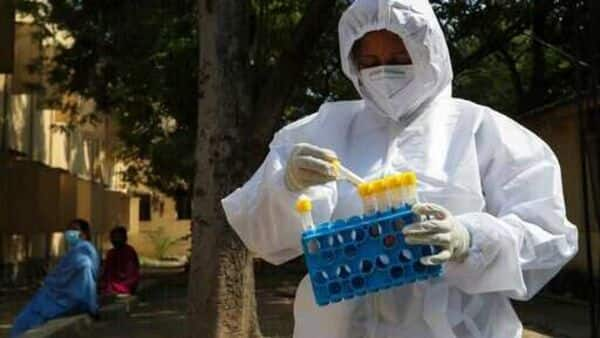Who issues new contact tracing and quarantine guidelines amid Omicron spread
The World Health Organization (WHO) on Thursday recommended new guidelines for testing and quarantining patients given the high circulating levels of SARS-CoV-2, particularly the Omicron variant.
The health body said the length of quarantine for those exposed to coronavirus can now be shortened, saying those who test negative can now end quarantine after seven days instead of 14 previously.
When testing to shorten quarantine is not possible, quarantine can be ended after day 10 without testing if the contact has no symptoms, the agency said in its new interim guidance.
He informed that the post-quarantine transmission risk for 10 days of quarantine (based on pre-Omicron data) is estimated to be around 1%, with an upper limit of around 10%.
He also said recently vaccinated contacts of patients may be considered a lower priority.
But beyond about 90 days of vaccination, due to decreased protection against infection after primary vaccination and limited follow-up data for booster doses, contacts should be considered unvaccinated contacts.
For patients with Covid-19, he said countries could consider shortening the quarantine period to seven days with the addition of a PCR or Ag-RDT administered by trained personnel. “WHO does not recommend self-administered tests to shorten quarantine at this time.”
Global Covid Situation
It comes as the WHO said on Wednesday that the number of new coronavirus cases worldwide fell 19% in the past week while the number of deaths remained stable.
The UN health agency, in its weekly pandemic report, highlighted that just over 16 million new Covid-19 infections and around 75,000 deaths were reported worldwide in the past week.
The Western Pacific was the only region to report an increase in new weekly cases, an increase of around 19%, while Southeast Asia reported a decrease of around 37%, the largest drop in global. The number of deaths has increased by 38% in the Middle East and by about a third in the Western Pacific.
The highest number of new Covid-19 cases has been seen in Russia. Cases there and elsewhere in Eastern Europe have doubled in recent weeks, driven by a rise in the highly infectious omicron variant.
The WHO said all other coronavirus variants, including Alpha, Beta and Delta, continue to decline globally as Omicron crowds them out.
Of the more than 4,00,000 coronavirus sequences uploaded to the world’s largest virus database last week, more than 98% were Omicron.
The health body also said the BA.2 version of Omicron appears to be “increasing steadily” and its prevalence has increased in South Africa, Denmark, the UK and other countries.
Health officials have noted, however, that Omicron causes milder disease than previous variants of Covid-19 and in countries with high vaccination rates, hospitalization and death rates have not increased by substantially, even with the spread of Omicron.


Comments are closed.